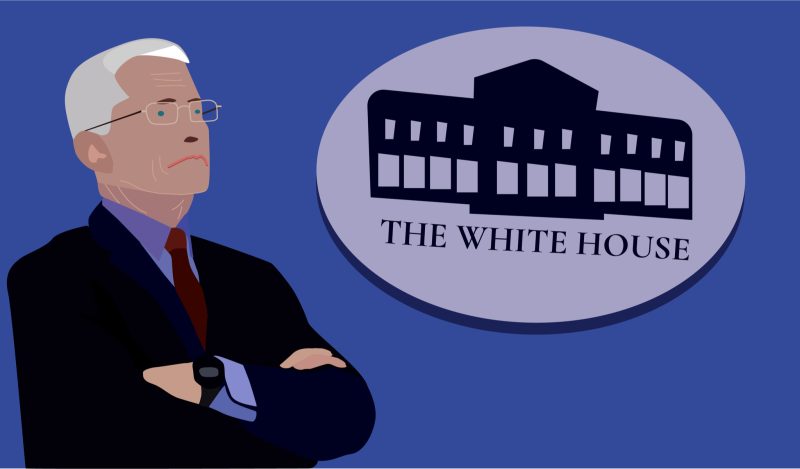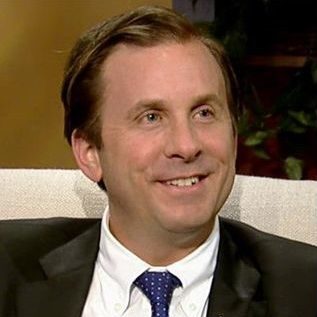With Anthony Fauci, it’s interesting to think about what might have been. In particular, what might have been had he worked in the market-disciplined private sector as an immunologist. The fairly easy speculation here is that his decades of government work held him back, as they do all who toil without marketplace pressure.
Imagine then if Fauci had worked for McDonald’s, or AMC Entertainment, or amusement park company Six Flags as in-house virus expert focused on how viruses spread in crowds. If so, his room for error would have been substantially shrunken. There’s no way he could have uttered something so irresponsible as “I think we should be overly aggressive and get criticized for overreacting.” That’s what Fauci said on March 15, 2020. Since he was panic-stricken, Fauci thought it was essential for his political-class counterparts to force an economic contraction. Businesses, jobs and freedom be damned. Crucial about Fauci’s hysteria is that he couldn’t have been so cavalier about overreacting if his pay came from a for-profit business.
To which some readers will say, “Good.” They’ll claim that that “Fauci’s insulation from the pressures of the market enable him to say what can’t or wouldn’t be said if unemployment were the consequence of incorrect utterances, or words expressed in inarticulate fashion.” Furthermore, they might say that “pressure in the free market cuts both ways, particularly in relation to the coronavirus. If Fauci had been in the employ of McDonald’s, AMC, or Six Flags when the virus became a big story, he might have felt the pressure to downplay it in consideration of how overreaction could have possibly shrunk customer count for all three corporations.” The assumptions are absolutely backwards, and naïve.
Indeed, think about how the share prices of any public company are calculated by market analysts. They’re valued based on expectations about all the dollars a company will earn in the future. It’s a reminder that stock markets never price the present; they’re always a best-estimate look at what’s ahead.
Which is why for-private businesses have zero incentive to lie to their customers, and zero incentive to not overreact. Indeed, imagine again if Fauci worked for one of the companies mentioned, only to purposely downplay the virus to avoid scaring customers in March of 2020. After which, imagine if the virus had turned out to be intensely lethal, or the cause of violent illness, and easily spreadable in crowded locales. It’s not unreasonable to speculate that under such a scenario, all three private companies would have suffered a difficult-to-recover-from black eye. As a consequence, their share prices would have plummeted to reflect market pessimism about their ability to win back the trust of customers. Under the scenario described, Fauci would have been out of a job. With good reason.
In the for-profit world market share is hard won, and so are brands. There’s very little margin for error. A failure to protect one’s customers would obviously amount to one of the biggest brand and market share killers. Which easily puts to bed the silly notion that Fauci’s medical analysis would have beenl less trustworthy if it had been crafted under the market’s hot light. Quite the opposite, really.
Just the same, a market-disciplined Fauci would have been far more careful about overreacting to the virus too. What choice would he have had? Precisely because McDonald’s, AMC, and Six Flags are reliant on crowds, Fauci would have had to more seriously analyze all information available before calling for economy-crushing lockdowns. In particular, he might have looked more closely at where the virus began to spread.
And in looking closely at China, he would have made sure to reach out to the countless U.S. corporations with major exposure to the Chinese market, only to ask the obvious question: are customers falling ill or dying in rampant fashion? In other words, a market-focused Fauci would have sought out market signals from a huge consumer market for American companies. Notable here is that U.S. company shares were hitting all-time highs in the months that the virus spread without government response in China. The latter was a signal that the virus was many things, none of them terribly lethal.
Of course, market signals plainly never factored into Fauci’s analysis. He once again made plain that no virus-related risks should be taken, even if it meant economic contraction. Such are the luxuries, but more realistically the negatives of working without marketplace pressures. It’s easy to be wrong when there’s no share price exposing your error.
To be clear about this, Fauci was wrong. Even New York Times readers know this. The newspaper has long reported that in a death sense, the virus has always been most associated with very old, and very sick people in nursing homes. One guesses that a privately-employed Fauci would be more vocal about this truth. Markets force the truth.
Which is why Fauci would have been dangerous even if politicians had sat on their hands in March of 2020. The reality is that Americans were scared about a virus from overseas, and they started to take major, arguably unnecessary precautions based on fear fanned by doctors and experts in the employ of government. One guesses those doctors and experts would have had to have been more circumspect if privately employed, and as a consequence a lot of businesses and humans would have avoided the agony they’re presently enduring.
Republished from RealClearMarkets
Join the conversation:

Published under a Creative Commons Attribution 4.0 International License
For reprints, please set the canonical link back to the original Brownstone Institute Article and Author.









